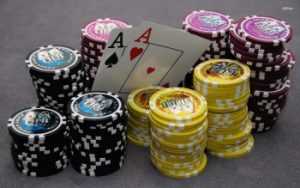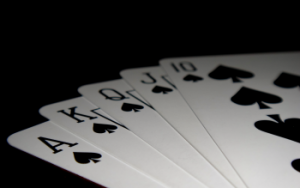 We continue with the topic we started. Overconfidence and superiority shifts. They are closely related. The overconfidence shift manifests as a very strong belief in the correctness of one's opinion. One study showed the astonishing results of this shift.
We continue with the topic we started. Overconfidence and superiority shifts. They are closely related. The overconfidence shift manifests as a very strong belief in the correctness of one's opinion. One study showed the astonishing results of this shift.
After a group of subjects were given test sheets with the most common word mistakes, the researchers asked the participants what they thought the correct spelling of the word was, and then asked how confident they were that their answer was correct. The subjects responded that they were 99% sure their answer was correct, but they were wrong 40% of the time. This shift in poker manifests as a tendency to be overly certain about one's reads, one's own calculated probabilities, and the solidity of one's strategy.
The superiority shift is the tendency of people to overestimate their abilities in areas where they are improving or to excessively inflate their weaknesses. As you can imagine, this is a fairly common shift. Most people think of themselves as above average, when in fact only half of them could actually claim that title. However, this shift is especially evident when a person has poorly developed skills. They think they are simply terrible.
In poker, this can manifest in very different ways, depending a lot on the player's history. Most mid-high stakes players have a clearly inflated confidence in their skills. This should not be surprising, considering their personal history. Objectively speaking, they have managed to become very good players and find themselves among the top 0.001%. They have also managed to beat players who previously outperformed them. However, it is somewhat unreasonable for them to imagine that they have limitless potential. Influenced by their past play, they begin to think they are much stronger than they actually are and that they can beat a much stronger opponent just by coming up with some magical trick. The result is an exaggerated sense of superiority, an unstoppable ego, and a distorted perception of their skills. A perfect recipe for inviting trouble.
The opposite pole of this shift is players who have faced many difficulties in their careers. Perhaps they played at lower stakes, or they used to play at higher stakes but can no longer maintain those positions. Or maybe they are just bumhunters. Influenced by their conditioned history, such players are more likely to severely underestimate their skill level. They will conclude that there is no need to move forward, that most regs are better than them, and those who are truly better will be placed among the very best. Both overestimating and underestimating players have a distorted perception of their skills. Understanding one's skill level is undoubtedly difficult, but in the poker world, it is very important to measure one's abilities correctly.
It can be observed that players who performed well are more likely to think they are great and capable of playing well, while players who faced obstacles are more likely to believe they are vulnerable. This self-perception is learned and often encouraged by the confirmation bias. This bias is the tendency to seek or pay attention to information that confirms our beliefs.
For example, a player who thinks they are a good opponent will see every match they win as proof of that. A player who thinks they are average will take every lost session as  proof that they need to step down and bumhunt more. It is very likely that the percentage of sessions won and lost by both players is exactly the same. The only difference is which cognitive bias is given more attention.
proof that they need to step down and bumhunt more. It is very likely that the percentage of sessions won and lost by both players is exactly the same. The only difference is which cognitive bias is given more attention.
The last cognitive shift worth our attention is the hindsight bias. This bias makes us see past events as more predictable than they actually were – the “I knew it all along” effect. The most striking examples of this are seen in game flow. Someone bets a lot twice in a row, in big back-to-back pots. There is always a chance that if you call the second time and they have the nuts, you will immediately think, “God, it was so obvious, no one bluffs twice in a row,” but if you fold and they show they were bluffing, you will immediately think, “I knew it, it was such a good spot to bluff, I felt I had to call.”
In such a situation, it is best to rely on yourself. People are often not as predictable as we would like them to be. Like other biases, this one is also difficult to overcome, especially because poker is a game of generating and testing hypotheses. It is hard to play it without thinking that events and people are predictable.
So, these are the psychological factors that distort our view. By understanding them more clearly, we will see a truer situation in the game.





